Meet Our Teachers
Rachelle Friedman
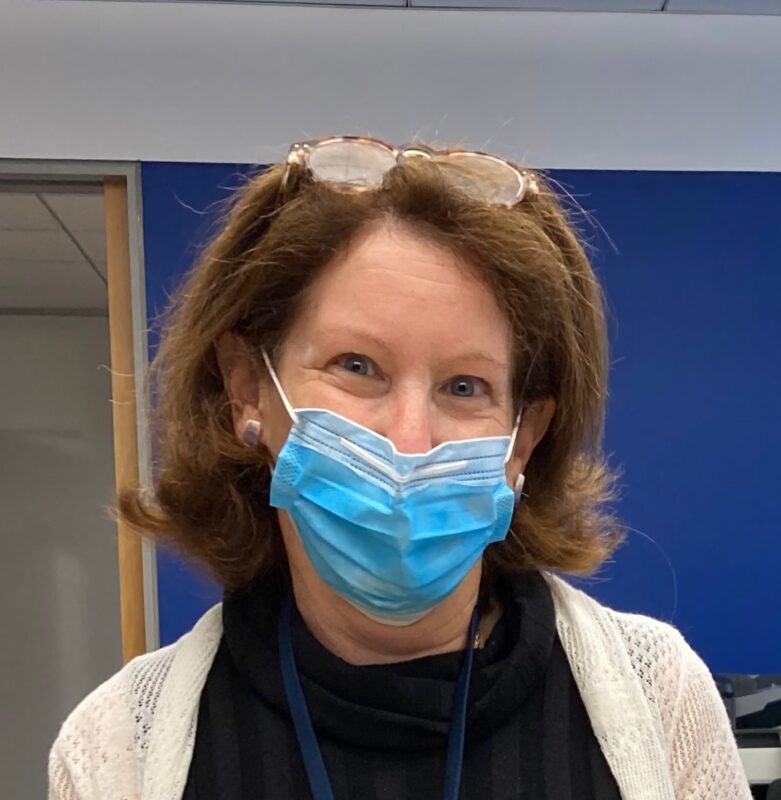
When Rachelle Friedman received an email from Teaching American History announcing a multi-day seminar on “The Political Theory of the American Founding,” she signed up for it, because it “sounded timely and appropriate for what I teach.” Friedman teaches 7th through 11th grade history at the Lycée Français de New York, a bilingual high school in Manhattan that offers students from all over the world a course of study culminating in the high-stakes French “baccalaureate” exam. Friedman teaches in English, although she speaks French well. Her courses cover the eras that young people in France study; they are centered mostly around European history, although her 10th grade course, which is organized thematically, covers the creation of democracies—including, of course, American democracy.
What Happens at a TAH Weekend Seminar
Traveling to Santa Fe, NM in March 2022 to attend the seminar, she wondered what to expect. What other teachers, from what other schools around the country, would attend? What would she learn from the professor facilitating the seminar, and how would it differ from what she had learned years before, while earning a PhD in American history (she wrote her dissertation on the Puritans) at UCLA?
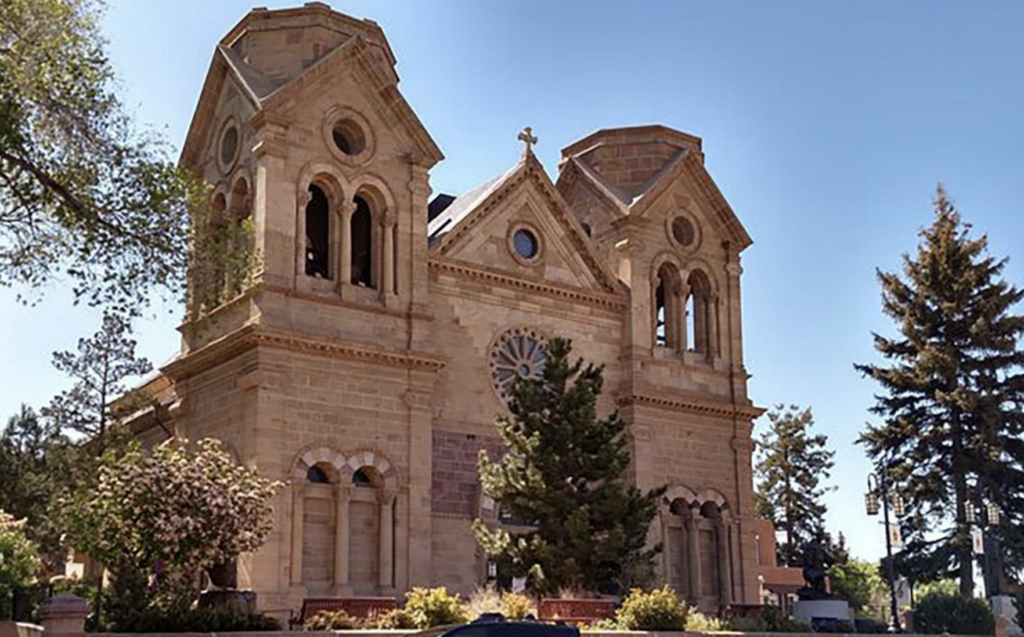
Notified of a last-minute change to her flight schedule, Friedman rushed to the airport earlier than she’d planned. Getting from the Albuquerque airport to Santa Fe was easy, thankfully, due to a shuttle service between the cities. Arriving in late morning at the hotel where the seminar would be held, she dropped her bags and set off on foot to explore the charming old Spanish city. When she walked into the late-afternoon welcome reception for seminar participants, she was already enjoying the weekend.
She warmed to the other teachers immediately. It was good to escape the Manhattan “bubble” and meet teachers who taught in very different sorts of schools. She was experiencing the US in the way that she always recommended her students, with their many nationalities, experience it—by leaving New York City and traveling to the interior.
A Satisfying and Sustaining Discussion
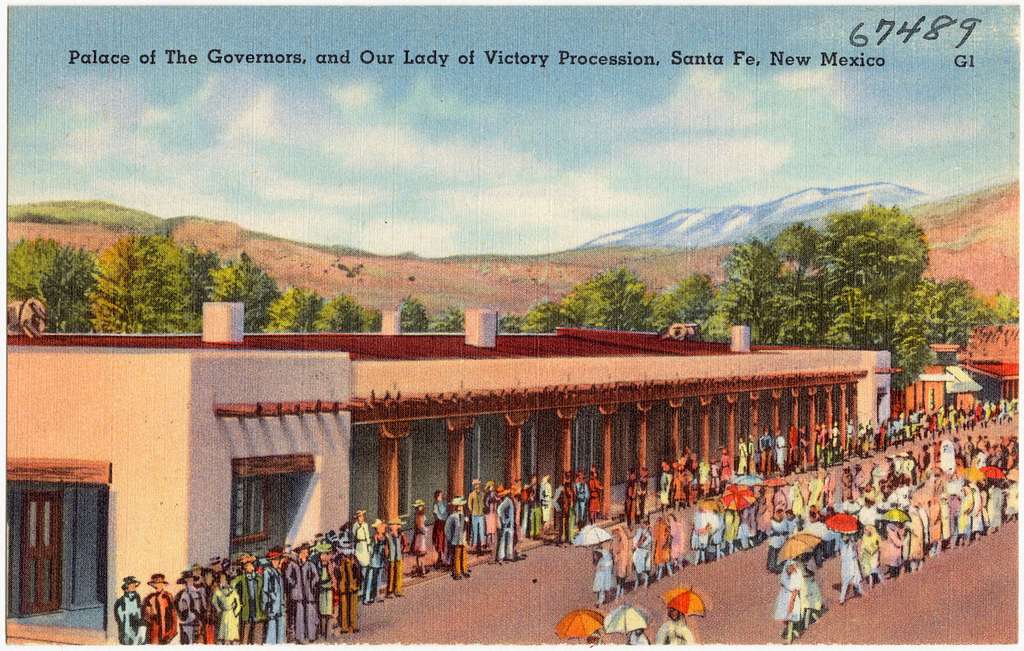
When the seminar began, she found herself caught up in the sharing of perspectives. “Everybody was smart. Everybody had prepared” by reading the packet of primary documents TAH sends to participants ahead of time. “I think everybody had a point of view, but all came in, I think, with a very generous spirit. They were all committed to the discussion. Did everyone speak equally? No, but as the seminar went on, everyone felt comfortable, and everyone spoke. At eighteen people, the seminar was the perfect size.
“We all teach different kids, using different approaches. We brought different political views and even, I think, different religious perspectives to the conversation. Yet we kept it going from Saturday morning through Sunday morning.”
Once or twice, current politics came up, but the seminar leader, Jason Jividen (Associate Professor of Politics at St. Vincent’s College) quickly steered the discussion back to the primary documents. The conversation reminded her of the intense, history-centered discussions she’d enjoyed during graduate school. “I was in graduate school a long time ago. This brought back the satisfying and sustaining kind of discussion” of those days, she told Professor Jividen.
The process the seminar followed—an in-depth discussion of primary documents that took note of the historical context and point of view of each author, and that drew insights from comparing one author’s thought to another’s—is very close to the process Friedman teaches her students. It gives them the reading skills and interpretive tools they need to sit the baccalaureate exam. But the TAH seminar pushed her toward new insights.
Discussion Brings New Insights
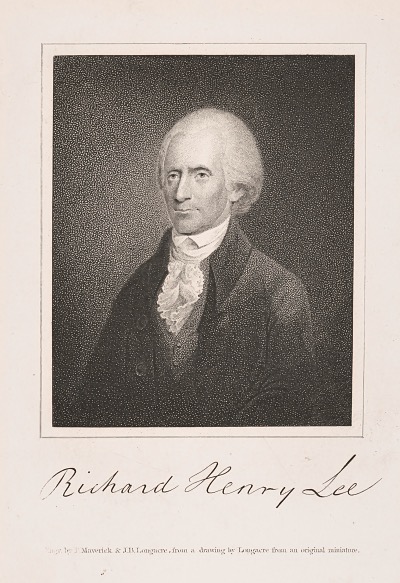
She found the debate between the Federalists and Antifederalists, as Americans decided whether to ratify the Constitution, surprising and revelatory. “I’d been taught in graduate school that the Anti-Federalists had nothing to say; they were simply playing defense against changes to the original, loose confederation of the states. Talking with the other teachers and Professor Jividen about this, I realized that in many ways, the Anti-Federalists were right! They made some smart arguments.”
As Friedman flew home, she was thinking of how America’s revolution compared to that of the French. Ignited 14 years after the shots fired in Lexington and Concord, the French Revolution began as Americans assembled their first Congress under the recently ratified Constitution. Although the French revolutionaries and the American founders read many of the same political theorists, their revolutions took very different courses.
“The seminar confirmed some ideas I’d been thinking about,” Friedman said. By Monday morning, she was sharing these thoughts with her students.
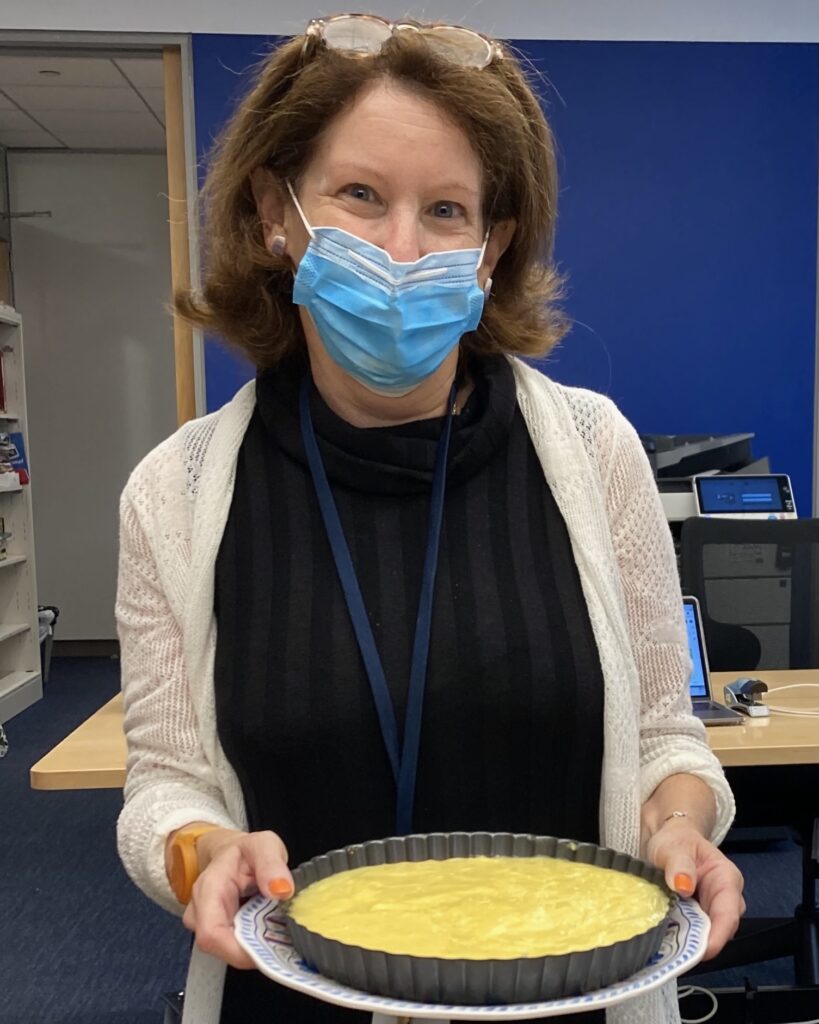
“I would love to become more involved in TAH programs,” Friedman said. “You guys are doing a great thing for teachers. I’m very fortunate to work in a private school where we’re not counting every penny,” a school with proximity to the libraries, museums and other cultural resources of New York City. “Some teachers are working alone in the wilderness—they have the support of colleagues at their schools, but they don’t have this kind of content-rich professional development opportunity. There are online opportunities, for sure—but after two years teaching remotely due to COVID, I think many of us are done with the online experience! The weekend was a great learning experience with a great group of people.”
